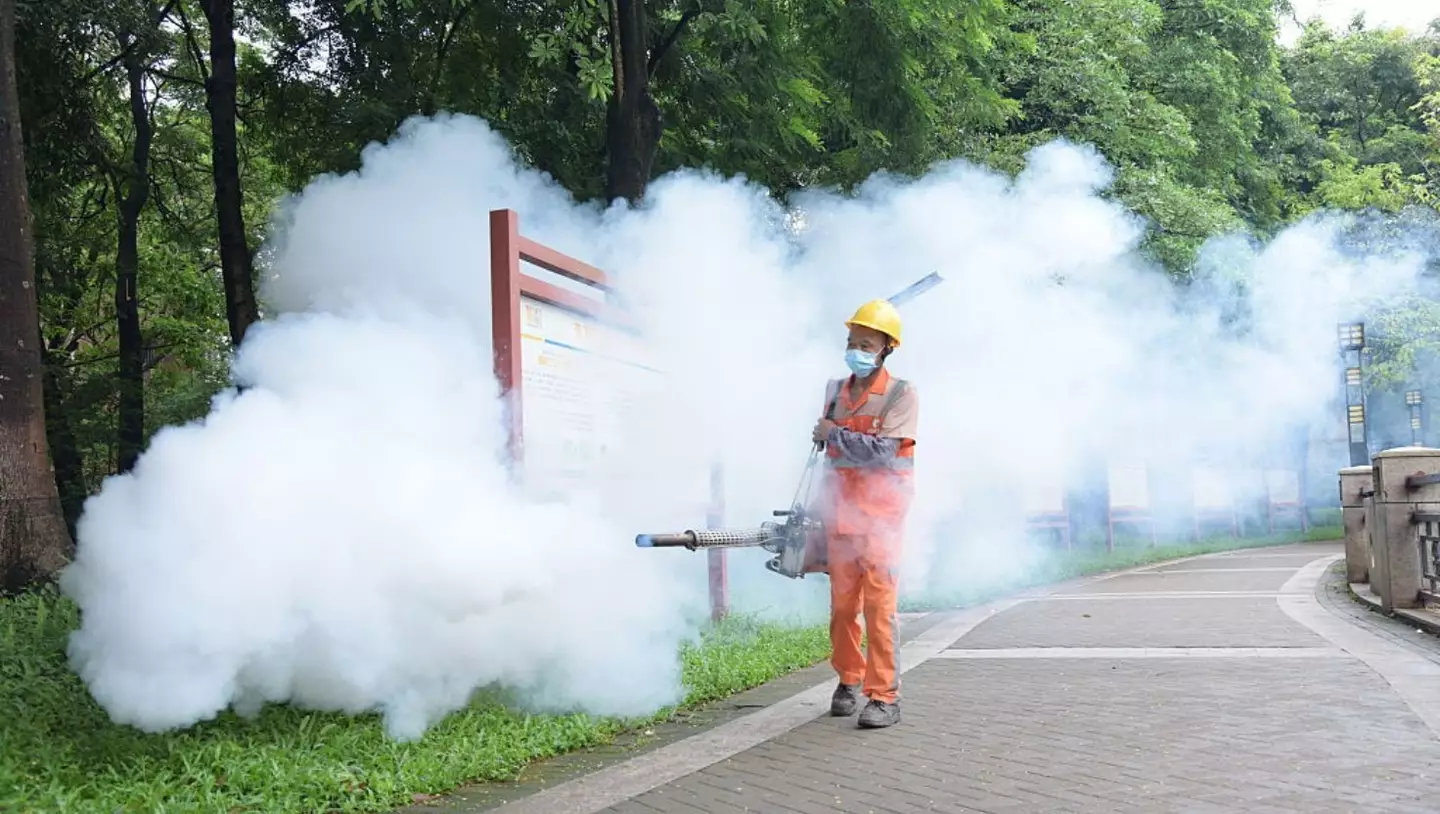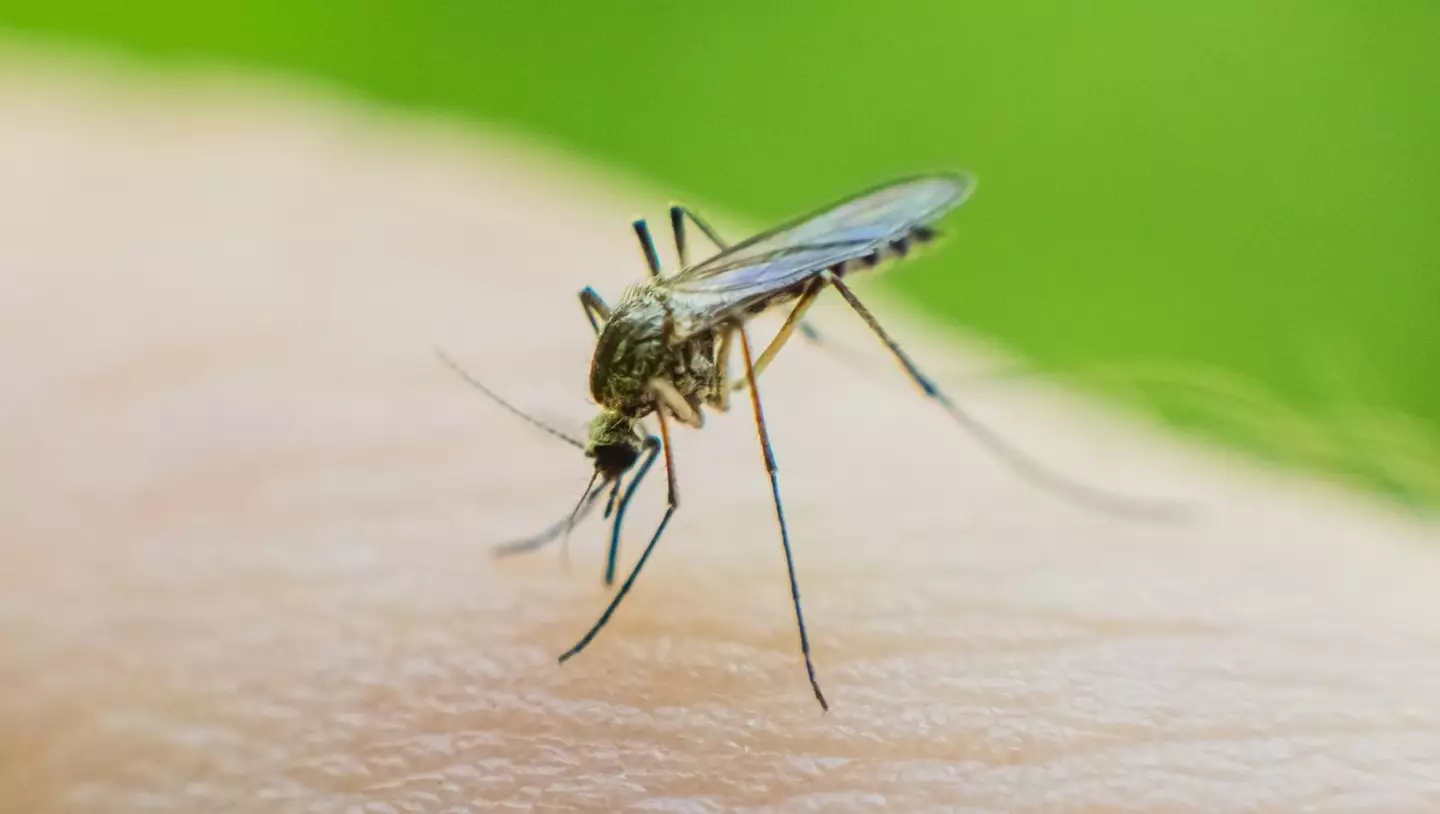
Chikungunya virus (CHIKV) is spreading like wildfire across Chinese cities, with health organisations reporting people in Europe, Africa, the Americas and other parts of Asia also coming down with the disease.
While definitely not as fatal as COVID-19, CHIKV is affecting millions of people worldwide, causing the implementation of home-based quarantines and drones being driven into highly populated areas.
China is currently pulling out all the stops when it comes to trying to contain the virus and stop the number of infections from rising, but cases have now been reported in other countries.
If this is your first time hearing about the illness, or you want to know more about how it spreads and which countries the virus has been detected in, we’ve detailed everything you need to know about the Chikungunya virus.
Advert

What is Chikungunya virus?
Chikungunya virus causes the viral Chikungunya disease - a significant concern for travellers to some destinations, including China.
First identified during an outbreak in Tanzania in 1952, Chikungunya remained relatively contained to parts of Africa and Asia for many years, as per the UK government’s blog.
However, the virus has now spread to new territories and is currently affecting thousands of people worldwide.
More than 7,000 cases have been reported across China's Guangdong province since July, with Foshan city being hit the hardest. At least 12 other cities across the province have also reported infections.
Unlike COVID-19, CHIKV is not contagious, with officials reporting that 95 percent of hospitalised patients are discharged within seven days.
Despite not being considered fatal, the United States has urged travellers to China to exercise ‘increased caution’ following the outbreak.
How does Chikungunya virus spread?
The infection is mosquito-borne, meaning it spreads through infected female insects, which can also transmit dengue and Zika viruses, as per the World Health Organisation (WHO).
It’s understood that people are getting bitten in daylight hours, both indoors and outdoors, and that eggs are being laid in containers with standing water, like plant pots and bins.
If a mosquito bites someone who is already infected with the Chikungunya virus, then the illness will manifest over several days.
Once the disease is developed, the female mosquito can then transmit it to a new human host, once bitten, with the cycle continuing.
.jpg)
Which countries is Chikungunya virus present in?
Last week, the European Centre for Disease Prevention and Control (ECDC) confirmed cases of the disease have been reported in the Americas, Africa, Asia and Europe.
In the latter, countries with reported infections include Italy and France.
EU/EEA countries have reported imported cases from other African countries like Madagascar and the Seychelles, possibly indicating more widespread circulation of chikungunya in the Indian Ocean region.
Over 34,000 CHIKV cases have been reported from Asia including India, Sri Lanka, Mauritius, Pakistan and China.
In Africa, reports have been made from Senegal and Kenya.
The only countries in the Americas and the Caribbean that have confirmed zero cases are the Virgin Islands, Jamaica, Grenada, Puerto Rico, Uruguay, Chile, Ecuador, Panama, Nicaragua, Mexico and Canada.
While countries reporting the highest number of CHIKVD cases are Brazil, Bolivia, Argentina and Peru.
Belize, the Dominican Republic, Aruba and Saint Lucia, among others, have yet to confirm or deny whether the disease is present in their territories.
For a full, comprehensive list, head to the PAHO’s dedicated website.
What are the symptoms of Chikungunya virus?

People infected by the Chikungunya virus will experience symptoms of the infection within three to seven days of being bitten.
The UK Government’s blog says the symptoms of high fever and severe joint pain are likely to manifest first, followed by muscle pain, headaches, sensitivity to light, and distinctive skin rashes.
What measures has China taken to tackle Chikungunya virus?
Guangdong province residents are being threatened with severe fines if they refuse to remove stagnant water from their properties.
It’s understood that drones are enforcing these ‘decisive and forceful measures’ that Chinese officials are taking to stop the spread of the disease.
The release of giant ‘elephant mosquitos’ and larvae-eating fish has also been sanctioned in the hopes ‘they can devour smaller, chikungunya-spreading bugs’, according to the BBC.
Patients and travellers from Foshan were also asked to undergo a pandemic-style, 14-day home quarantine, but that has since been withdrawn, the outlet reported.
Topics: World News, China, Health
